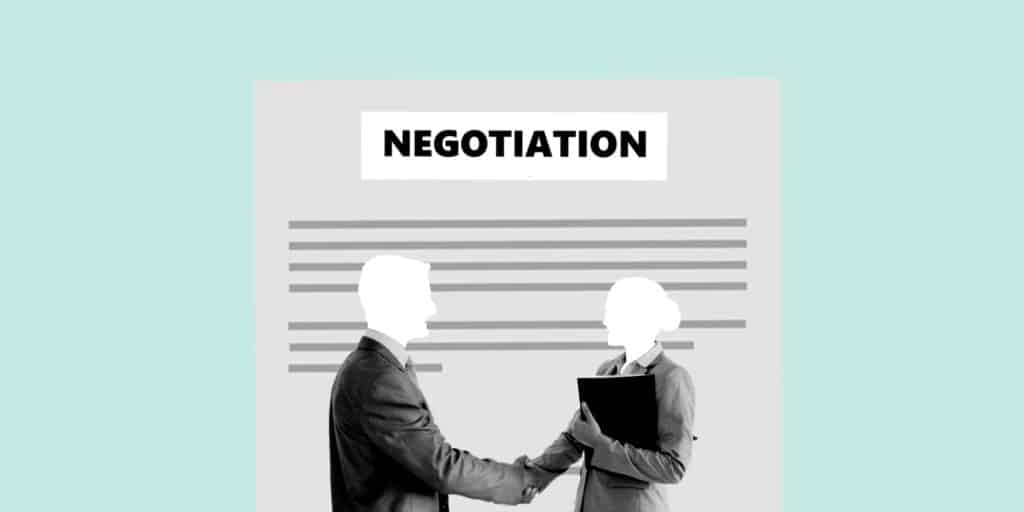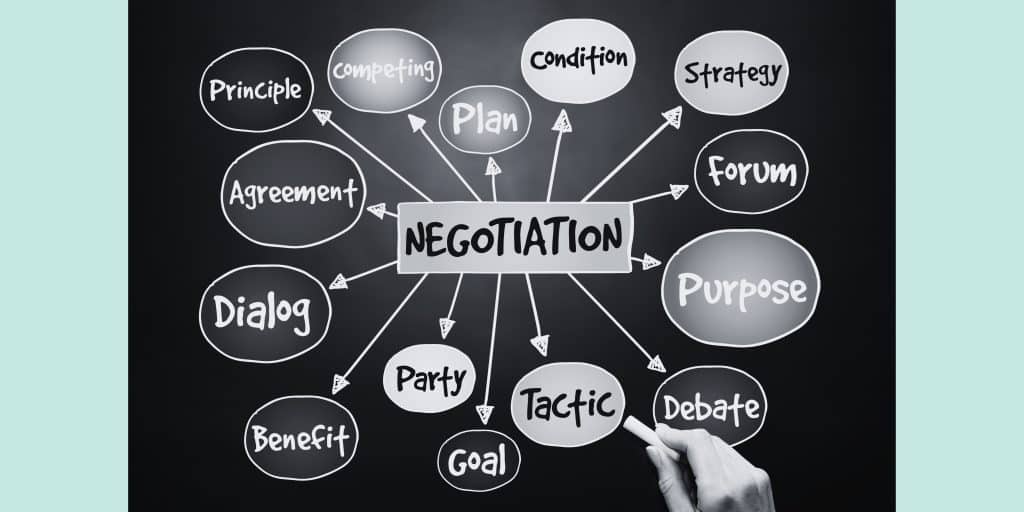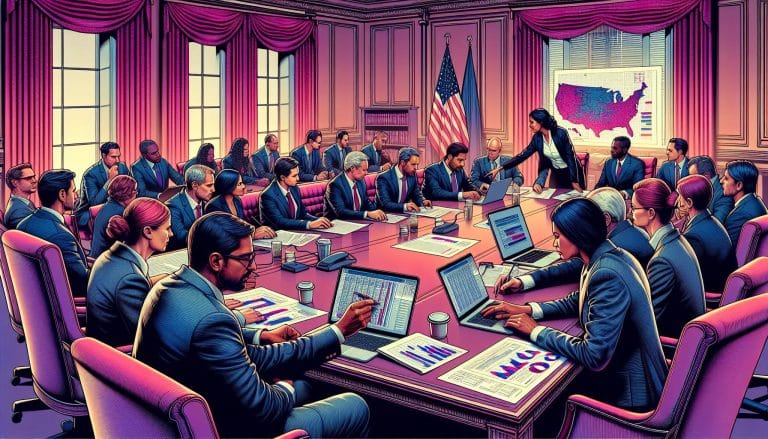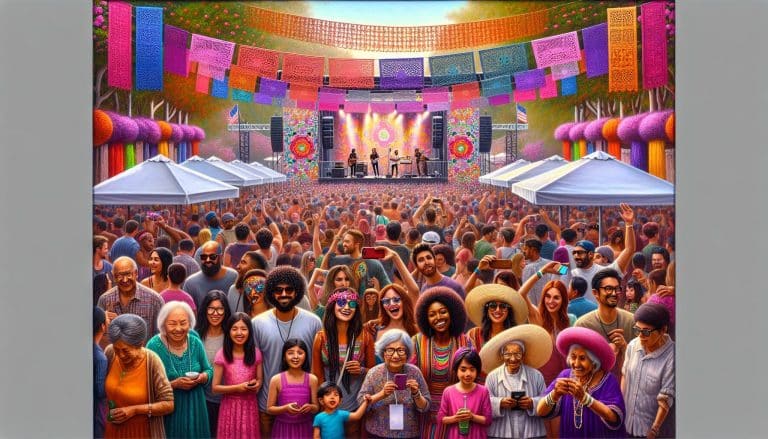Booking top-notch talent for your festival can make or break the event’s success. But negotiating with agents can be a daunting task, especially if you’re new to the game. Don’t worry – with the right strategies, you’ll be wheeling and dealing like a pro in no time.
Whether you’re organizing a music festival, comedy showcase, or cultural extravaganza, understanding the art of negotiation is crucial. You’ll need to navigate complex contracts, create and manage budgets, and secure the best acts for your audience.
In this guide, we’ll walk you through the essential steps to effectively negotiate with agents and book the perfect lineup for your festival.
Key Takeaways
- Understand the talent booking process, including agent roles and various deal structures, to make informed decisions for your festival
- Set clear goals, establish a comprehensive budget, and conduct thorough research on artists and market rates before initiating negotiations
- Use negotiation strategies like anchoring bias, framing effect, and foot-in-the-door technique to secure favorable deals with agents
- Focus on key aspects such as price, payment terms, performance dates, and technical riders during negotiations
- Finalize agreements in writing, addressing contingencies and potential challenges to ensure a smooth festival experience
Understanding the Talent Booking Process for Festivals
The Role of Agents in Talent Booking
Talent agents act as intermediaries between festival organizers and performers. These professionals represent artists, negotiate contracts, and manage bookings. Agents primarily handle communication, coordinate schedules, and ensure their clients’ interests are protected. They also possess extensive industry networks and insider knowledge, making them invaluable in securing top-tier talent for your festival.
Types of Booking Deals
Festival organizers encounter various booking deal structures when negotiating with agents:
- Flat Fee: A fixed payment for the artist’s performance
- Percentage Deal: Artist receives a portion of ticket sales or revenue
- Guarantee vs. Percentage: Combination of a guaranteed minimum fee plus a percentage of profits
- Multi-Show Deal: Discounted rate for booking an artist for multiple performances
- Package Deal: Bundled pricing for multiple artists from the same agency
Each deal type has pros and cons, impacting your budget and potential revenue. It is important to consider your festival’s financial structure and risk tolerance when evaluating booking options.
Preparing for Negotiations

Setting Clear Goals and Budget
Define your festival’s objectives and financial parameters before initiating agent discussions. Establish a comprehensive budget that accounts for talent fees performance production costs and ancillary expenses. Prioritize your lineup based on:
- Target audience demographics
- Genre diversity
- Headliner vs. supporting act balance
- Potential ticket sales impact
Create a tiered budget allocation for different levels of performers. This structure allows flexibility during negotiations while maintaining overall financial control.
Researching Artists and Market Rates
Conduct thorough research on potential artists and current market rates to strengthen your negotiation position. Focus on:
- Recent performance fees at similar festivals
- Tour schedules and routing opportunities
- Social media following and engagement rates
- Streaming platform statistics
- Chart positions and award nominations
Utilize industry resources such as:
- Pollstar
- Billboard
- Music Row
- Festival databases
Compile a spreadsheet of comparable bookings to establish realistic price ranges for different tiers of talent. Consider factors like:
- Festival size and prestige
- Geographic location
- Time of year
- Artist’s career trajectory
This data-driven approach equips you with valuable insights to make informed decisions and counter unreasonable demands during negotiations with agents.
Initiating Contact with Agents
Finding the Right Starting Point
First things first, you want to identify the appropriate agent for each artist on your festival lineup. Research talent agencies’ rosters and find contact information through industry directories like IQ Magazine or Music Row.
Reach out to booking agencies via email or phone, introducing yourself and your festival, providing essential details such as the event date, location, and anticipated attendance. Demonstrate your industry knowledge by referencing the artist’s recent performances or releases to establish credibility and get the negotiations going.
Making the Initial Offer
Present a compelling initial offer to the agent based on your research and budget, and include the proposed performance date, set length, and financial terms in your offer. Specify any additional perks or incentives, such as VIP accommodations or exclusive merchandise opportunities.
Be prepared to discuss potential deal structures, including flat fees, percentage splits, or guarantees against percentages. You should remain flexible, fair and open to negotiation while making sure to maintain a clear understanding of your festival’s financial limitations and goals.
Negotiation Strategies and Techniques

Leveraging the Anchoring Bias
Utilize the anchoring bias to secure favorable deals when negotiating with agents. Make the first offer to set a reference point for subsequent negotiations by presenting a reasonable but lower initial offer based on your research and budget constraints.
This approach establishes a baseline for the agent to work from, potentially leading to a final agreement closer to your desired terms.
Using the Framing Effect
Frame your offers to highlight the benefits for the artist and their team. You should present your festival as a unique opportunity for exposure, fan engagement, and career growth, with Emphasis on the festival’s reputation, media coverage, and potential for future collaborations.
By framing the offer positively, you increase the perceived value of your proposition, making it more appealing to agents and artists.
Applying the Foot-in-the-Door Technique
Implement the foot-in-the-door technique to gradually build agreement. To do this, start with smaller, more manageable requests before moving on to larger negotiation points.
For example, begin by securing the artist’s availability for your festival dates. Once you have this commitment, progress to discussing performance details and financial terms. This incremental approach increases the likelihood of reaching a mutually beneficial agreement.
Key Aspects of Negotiation

Discussing Price and Payment Terms
Negotiate price and payment terms with agents to secure favorable deals for your festival. First, start with a clear budget, and offer a competitive fee based on the artist’s market value and your event’s scale. Propose a payment structure that includes a deposit and final payment schedule.
Consider offering performance bonuses tied to ticket sales or attendance targets to incentivize artists, and be prepared to justify your offer with data on past festival performance and projected revenue. Discuss potential revenue-sharing models for merchandise sales or VIP experiences to create additional value for both parties.
Determining Performance Dates
Perhaps the most crucial cog in your talent booking procedure is coordinating performance dates that align with your festival schedule and the artist’s availability. Try to present multiple date options to increase flexibility in negotiations, and consider offering prime time slots or extended sets as incentives for artists to accept your preferred dates.
Discuss any potential conflicts with other events or tour schedules; address travel logistics and accommodation arrangements to ensure smooth scheduling. Be prepared to negotiate around exclusivity clauses that may restrict performances in nearby regions before or after your festival.
Reviewing Technical Riders
Once you have locked in your artist schedule, the next important step is to examine technical riders carefully to understand and accommodate the artist’s performance requirements.
Assess the feasibility of specific equipment requests within your festival’s infrastructure and budget, negotiating alternatives for excessive or impractical demands without compromising the quality of the performance. Discuss any limitations in your venue or production capabilities upfront to avoid last-minute issues.
Consider offering enhanced production elements or custom stage designs as negotiation leverage, which will ultimately contribute to the overall production value of your event. Address any safety concerns or regulatory compliance issues related to the technical specifications.
You should also be prepared to provide detailed information about your existing sound and lighting systems to streamline discussions.
Handling Counteroffers and Objections

Effective Communication Technique
Employ active listening to understand agents’ concerns fully, and acknowledge their points, making sure to respond with specific solutions that address their objections.
Use clear concise language to articulate your position and avoid misunderstandings and frame your responses positively focusing on mutual benefits rather than confrontational language. Ask open-ended questions to gather more information and uncover underlying issues. Keep summarizing key points throughout the conversation to ensure alignment and demonstrate attentiveness.
Being Flexible While Maintaining Your Position
It is important to identify your non-negotiable terms and areas where you have flexibility before entering discussions. Propose alternative options that meet both parties’ needs when faced with challenging demands.
Consider package deals or value-added incentives to sweeten the offer without compromising your budget, using a tiered approach offering different levels of compensation based on performance metrics or additional responsibilities.
Be prepared to walk away from deals that don’t align with your festival’s goals or financial constraints. Maintain a professional demeanor even when negotiations become tense preserving relationships for future opportunities.
Finalizing the Agreement

Getting Details in Writing
After reaching a verbal agreement, it is crucial to document all negotiated terms in a written contract.
Include specific performance details, such as date, time, duration, and set length, clearly outlining compensation, including base fee, percentage splits, and any bonuses. Specify technical requirements, such as sound and lighting equipment, stage setup, and any special effects and define hospitality arrangements, including transportation, accommodation, and catering. Also include clauses for promotional obligations, such as interviews or meet-and-greets if applicable.
Ensure the contract addresses intellectual property rights, including recording and broadcasting permissions.
Addressing Contingencies
Incorporate clauses that address potential issues to protect both parties, including a force majeure clause to cover unforeseen circumstances like natural disasters or pandemics.
Specify cancellation policies and any associated penalties for both the artist and the festival. Address weather-related contingencies, including rescheduling options or partial payment for canceled performances and include provisions for artist illness or inability to perform, outlining replacement options or refund policies. Define dispute resolution procedures, such as mediation or arbitration. Establish clear guidelines for performance standards and any grounds for termination of the agreement.
Troubleshooting Common Challenges
Dealing with Difficult Agents
Difficult agents pose unique challenges in talent booking negotiations. Address these challenges by maintaining a professional demeanor and focusing on mutual benefits. Establish clear communication channels and set expectations early in the negotiation process.
When faced with unreasonable demands, present data-driven counterarguments and alternative solutions. Leverage your festival’s reputation and past successes to strengthen your position. If an agent remains uncooperative, consider escalating the issue to their supervisor or exploring alternative talent options.
Managing Last-Minute Changes
Last-minute changes can disrupt festival planning and require swift action. Create contingency plans for common scenarios such as artist cancellations, travel delays, or equipment failures. Maintaining a roster of backup performers who can step in on short notice, implement a rapid communication system to inform staff, vendors, and attendees of any changes.
Negotiate flexible contract terms that account for unforeseen circumstances and outline specific procedures for last-minute alterations. Focus on developing strong relationships with local suppliers and venues to quickly source alternative resources when needed.
Conclusion: Best Practices for Successful Negotiations
Mastering the art of negotiating with agents for festival talent bookings is crucial for your event’s success. By understanding deal structures, setting clear goals and maintaining flexibility, you’ll be better equipped to secure top-tier acts within your budget.
Remember to research thoroughly, communicate effectively and be prepared to walk away if necessary. Always document agreements in detailed contracts and have contingency plans ready.
With these strategies you’ll navigate the complex world of talent booking with confidence, ensuring your festival delivers an unforgettable experience for attendees while achieving your organizational objectives.
Frequently Asked Questions
What is the role of agents in festival talent booking?
Agents play a crucial role in talent booking for festivals. They negotiate contracts, secure talent, and facilitate deal structures between artists and festival organizers. Agents act as intermediaries, ensuring both parties’ interests are represented and helping to streamline the booking process.
How important is understanding deal structures in festival planning?
Understanding deal structures is vital for effective financial management and revenue optimization in festival planning. It allows organizers to make informed decisions about artist bookings, allocate budgets efficiently, and maximize potential returns. Familiarity with various deal types helps in negotiating favorable terms and avoiding financial pitfalls.
What factors should be considered when prioritizing the festival lineup?
When prioritizing a festival lineup, organizers should consider audience demographics, genre diversity, and overall event goals. It’s essential to balance popular headliners with up-and-coming acts, ensure a mix of genres that appeals to the target audience, and align the lineup with the festival’s brand and objectives.
How can festival organizers prepare for negotiations with artists or their representatives?
To prepare for negotiations, organizers should research artists thoroughly, understand current market rates, and establish clear budgets and goals. It’s important to gather information on an artist’s recent performances, popularity, and typical fee ranges. This knowledge helps in making informed decisions and presenting competitive offers during negotiations.
What strategies can be used to handle counteroffers and objections during negotiations?
Effective strategies for handling counteroffers and objections include maintaining open communication, focusing on mutual benefits, and remaining flexible. Listen actively to concerns, propose alternative solutions, and be prepared to compromise on certain terms. Always keep the overall festival goals in mind while negotiating to ensure agreements align with the event’s vision.
When should a festival organizer consider walking away from a deal?
Festival organizers should consider walking away from a deal when the terms don’t align with the event’s goals, budget constraints, or overall vision. If negotiations reach an impasse, and compromises would significantly impact the festival’s success or financial viability, it’s better to explore other options rather than agreeing to unfavorable terms.
What should be included in the final written contract with artists?
The final written contract should include all negotiated terms, such as performance date, time, duration, compensation, technical requirements, and any specific rider details. It’s crucial to address contingencies, cancellation policies, and any unique arrangements agreed upon during negotiations. A comprehensive contract helps prevent misunderstandings and protects both parties’ interests.
How can organizers deal with difficult agents during the booking process?
When dealing with difficult agents, focus on finding mutual benefits and maintaining professional communication. Stay calm, be patient, and try to understand their perspective. If tensions rise, consider involving a neutral third party or taking a break from negotiations. Always keep the conversation centered on achieving a positive outcome for both the festival and the artist.
What strategies can help manage last-minute changes in the talent lineup?
To manage last-minute changes, create detailed contingency plans in advance. Maintain a list of potential replacement acts and have rapid communication systems in place. Build flexibility into the schedule and budget to accommodate unexpected shifts. Stay calm under pressure and be prepared to make quick, informed decisions to keep the festival running smoothly.
You May Also Like:
6 Steps Event Organizers Need To Know To Keep The Show Running Smoothly
Navigating the Pain Points: Achieving Profitability and Sustainability for Festival Organizers
Booking Underground Music: Balancing Club Profits and Artistic Integrity



